What is mattress off-gassing? What to expect and how to speed it up
Most mattresses off-gas — here's what that means, plus three easy steps to speed up the process
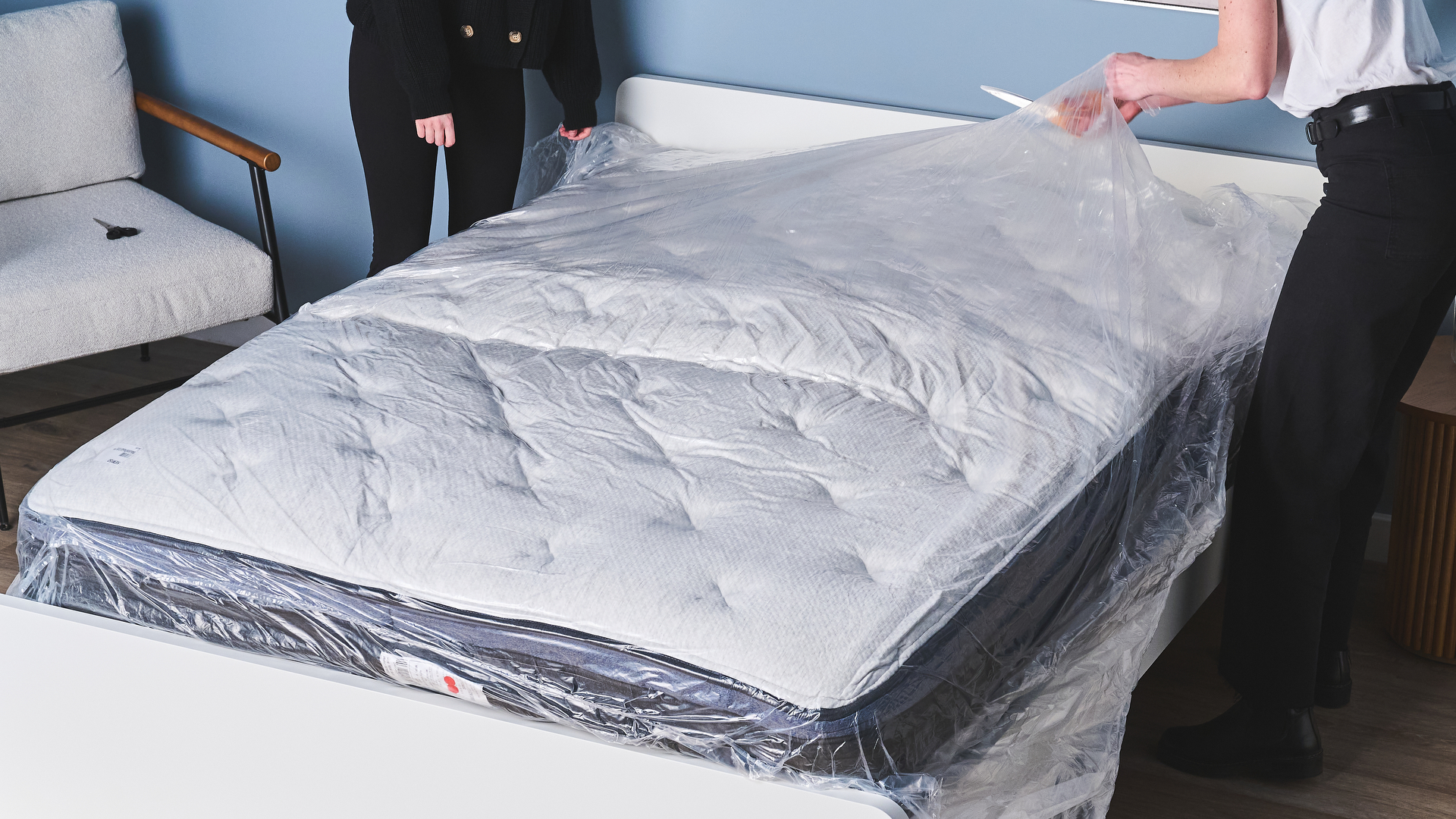
Off-gassing is the term used to describe the odor released when you unwrap a mattress that has been compressed and boxed for shipping. Off-gassing is harmless and usually dissipates within a few hours to a couple of days, but If you’re sensitive to this smell, you have asthma, or have small children in the house, you might be trying to avoid it.
Many of the top recommendations in our best mattress guide are prone to off-gassing at first, so we've learned some pretty nifty tricks over the years to speed up off-gassing and get that smell out of your bedroom asap. Here's what you need to know...
What is mattress off-gassing?
Mattress off-gassing is when volatile organic compounds (VOCs) are released from the materials in your mattress into the air. The VOCs are a by-product of the foams commonly used in mattresses and can cause a very strong, potent smell.
When you first unbox or unpackage your mattress, the smell will be strongest as these VOCs have the ability to vaporize at room temperature, meaning they will be evaporating into the air around you.
Is mattress off-gassing dangerous?
No, ultimately mattress off-gassing is not dangerous. Mattresses go through a huge amount of testing to ensure all the materials used are safe both for the environment and those sleeping on them. So, while the smell is admittedly very strong, it won’t harm those in your household.
However, you may experience some side effects if you're particularly sensitive to strong odors. Claire Davies, Senior Sleep Editor and Certified Sleep Science Coach at Tom's Guide says that, "while rare, some people may experience certain side effects of off-gassing, including headaches, dizziness, fatigue, nausea, and eye and skin irritation.
"If you have existing allergies and breathing conditions such as asthma, off-gassing may make them worse temporarily. That's why we recommend keeping your windows open when unboxing a mattress."
Sign up to get the BEST of Tom's Guide direct to your inbox.
Get instant access to breaking news, the hottest reviews, great deals and helpful tips.
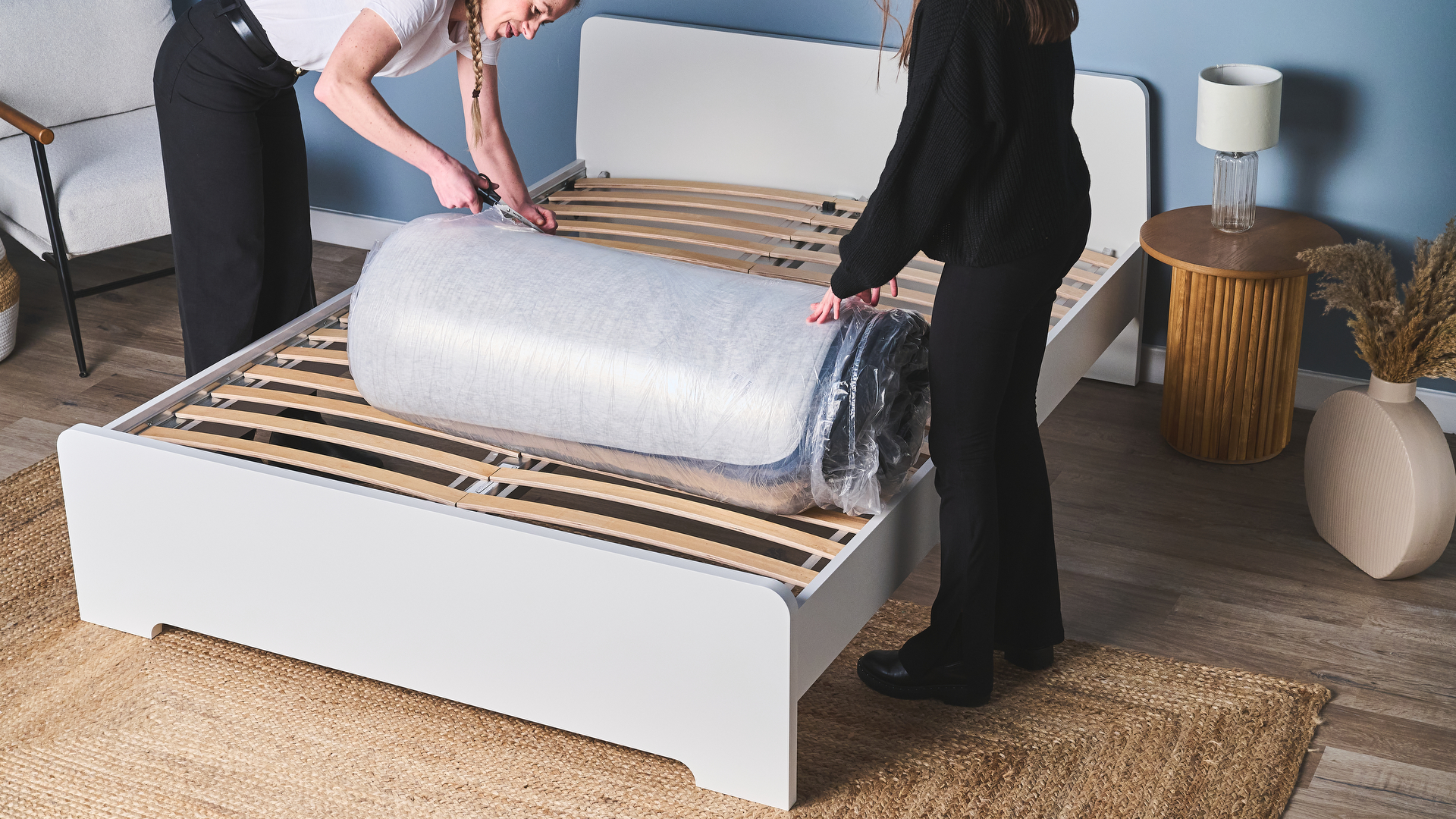
What kind of mattresses off-gas?
If you’re particularly concerned about off-gassing, opting for innerspring or organic mattresses will reduce the likelihood of experiencing it. Below we break down each type of mattress and explore whether they off-gas.
Foam mattresses
Foam mattresses are the biggest culprits for off-gassing. This includes memory foam, polyurethane, and other common foams found in mattresses. This is because they are synthetic materials that are likely to contain VOCs. Cheaper foam mattresses will usually off-gas more, because of the lower quality of the foam used.
Many of the best memory foam mattresses release very little off-gassing, and it’s important to note that ensuring mattresses have certifications like GREENGUARD Gold, OEKO-TEX, CertiPUR-US, and eco-INSTITUT will mean your mattress’s emissions levels aren’t dangerously high and the chemicals used aren’t toxic.
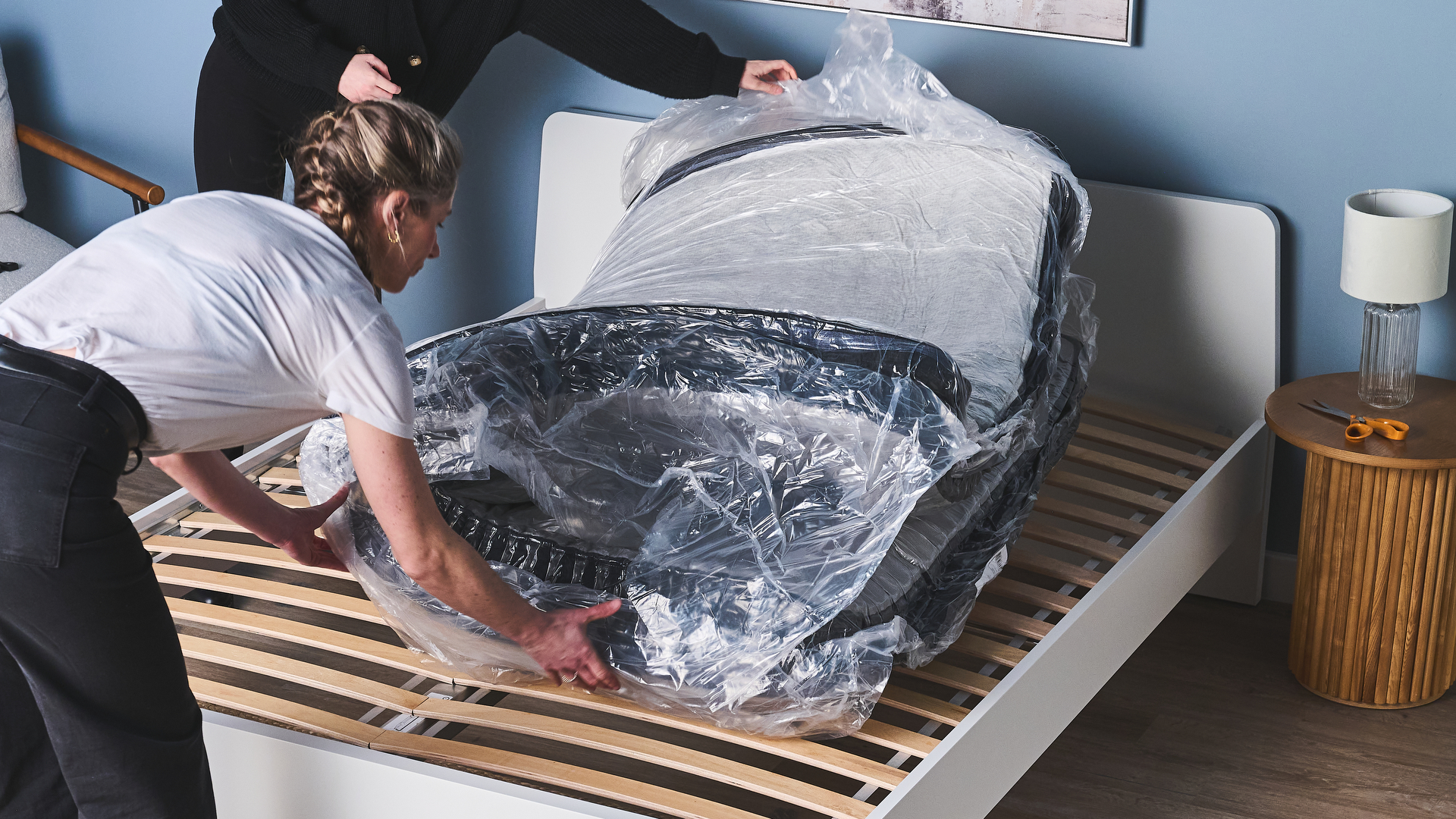
Hybrid mattresses
Even the best hybrid mattresses are likely to emit some kind of smell. This is because as well as coils and springs used in the mattress structure, there are layers of foam. Compared to all foam mattresses, the odor will be a lot less noticeable.
So, if you want to avoid off-gassing, but love the sink-in feeling of a foam mattress, a hybrid model might be your answer. Consider reading our Helix Midnight Luxe review to see if this mattress suits your sleep style, as our professional mattress testers didn't report any off-gassing when they unboxed this model.
Latex mattresses
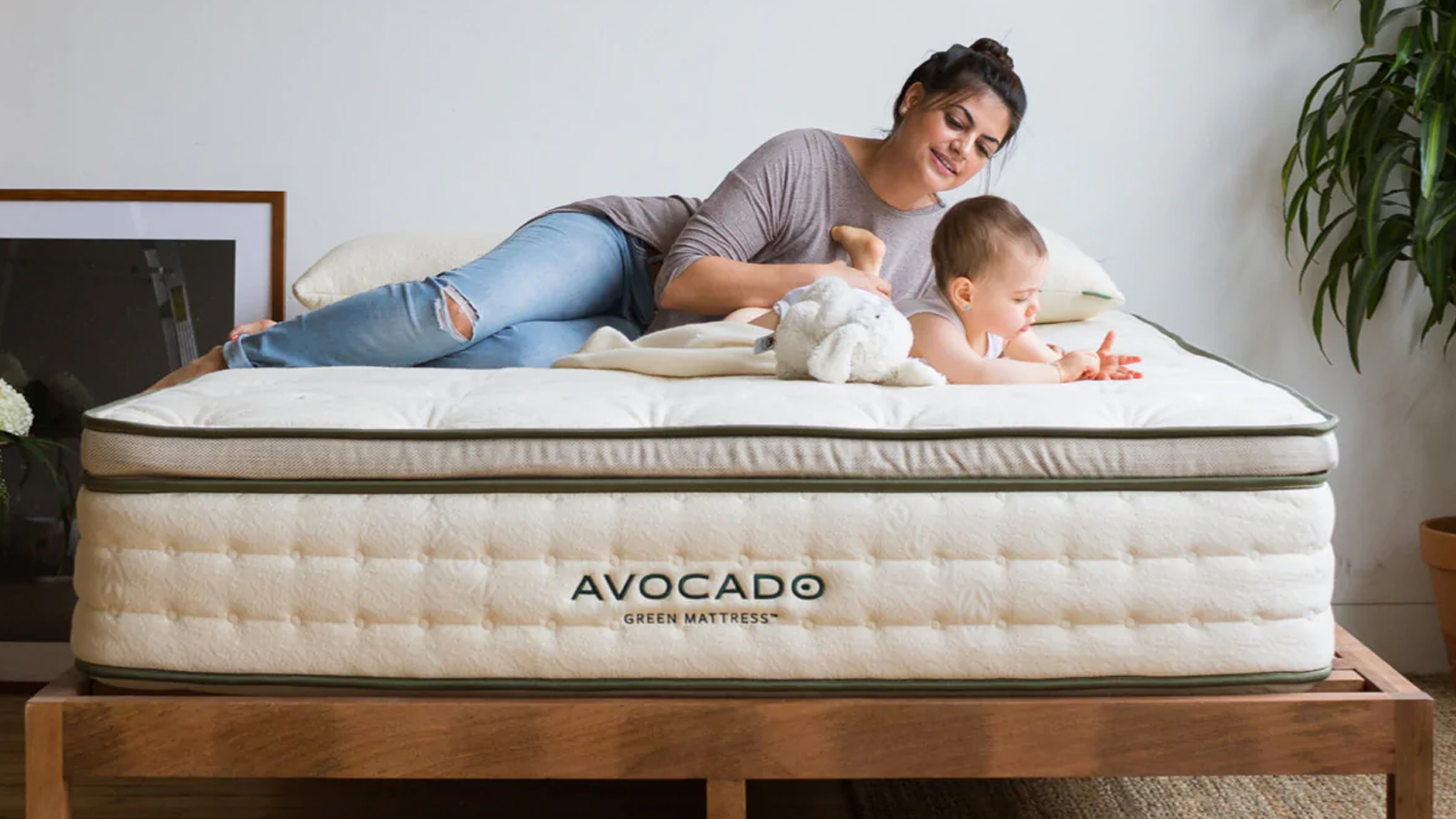
Latex is a natural material derived from rubber made from the sap of trees. It’s often used in premium mattresses because it provides a supportive, adaptive, and slightly bouncy surface. Natural latex mattresses shouldn’t off-gas because they don't contain any synthetic chemicals.
However, synthetic latex is used in cheaper mattresses. If you want to prevent any off-gassing, make sure the mattress you buy is GOLS certified - this means it’s been tested and approved to be organic, natural latex. For example, the Avocado Green mattress is an organic latex mattress and our testers reported very little off-gassing that dissipated after just an hour.
Innerspring mattresses
Innerspring mattresses are unlikely to off-gas. These are mattresses that only use metal microcoils and springs, instead of foam.
If the coils are individually wrapped in fabric, you might expect a little chemical odor, but it won’t be nearly as severe as a foam or even a hybrid mattress.
How to speed up mattress off-gassing
Sometimes, off-gassing is inevitable. While there aren’t many ways to prevent it from happening, you can speed up the process.
1. Remove packaging
Julie explains that you can "expedite the off-gassing process by unpackaging your mattress immediately". When mattresses are vacuum packed, the VOCs don’t evaporate, so when you expose the mattress to air again, these compounds will start releasing from the mattress. This is why removing the plastic packaging around your mattress will speed up the off-gassing process.
Doing this as soon as possible will mean the smell will dissipate sooner. If you’ve ordered a mattress in a box, then unboxing and unwrapping the mattress and leaving it on your bed frame to expand will help. If it’s a traditional flat-delivered mattress, ensure you remove the plastic as soon as it’s delivered.
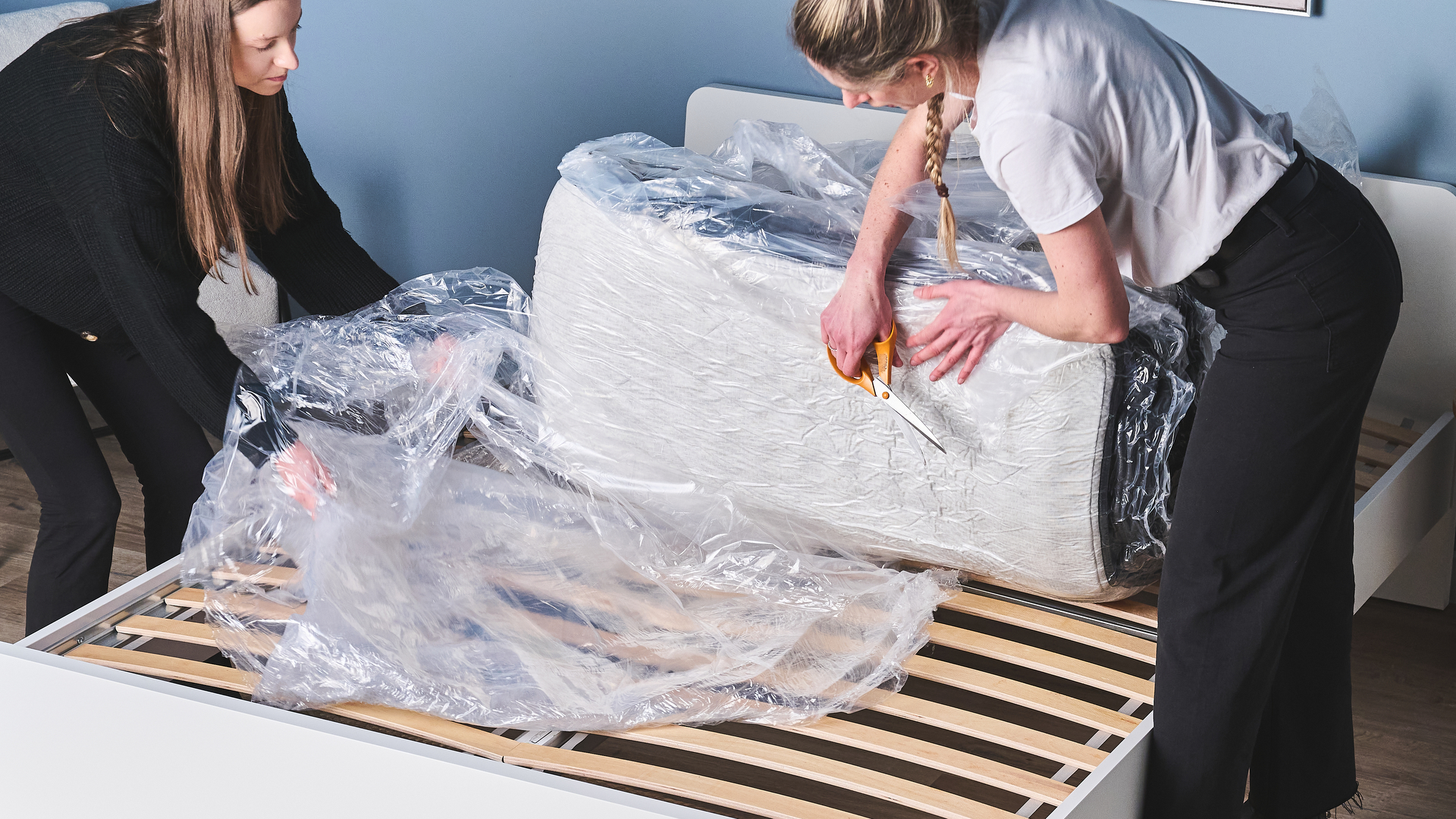
2. Open a window
Increasing the airflow in your bedroom can speed up the off-gassing process of your new mattress. Circulating the air will help dissipate the VOCs, and a breeze can speed up the evaporation process.
We’d suggest closing your bedroom door and opening the windows wide so most of the smell will escape to the outside, rather than into the rest of your home.
3. Place your mattress in the sun
If you can, placing your mattress outside can speed the process up even more. The combination of being outdoors, the sun, and the wind can make evaporation of the VOCs a lot quicker. However, remember that a mattress is a big investment and one that should last up to 10 years, and sometimes longer, so be sure it’s protected from any potential damage.
If taking it outside isn’t an option, positioning it in a bedroom that gets sunlight can have a similar effect. The heat from the sun will quicken evaporation, so the mattress can release VOCs quickly.
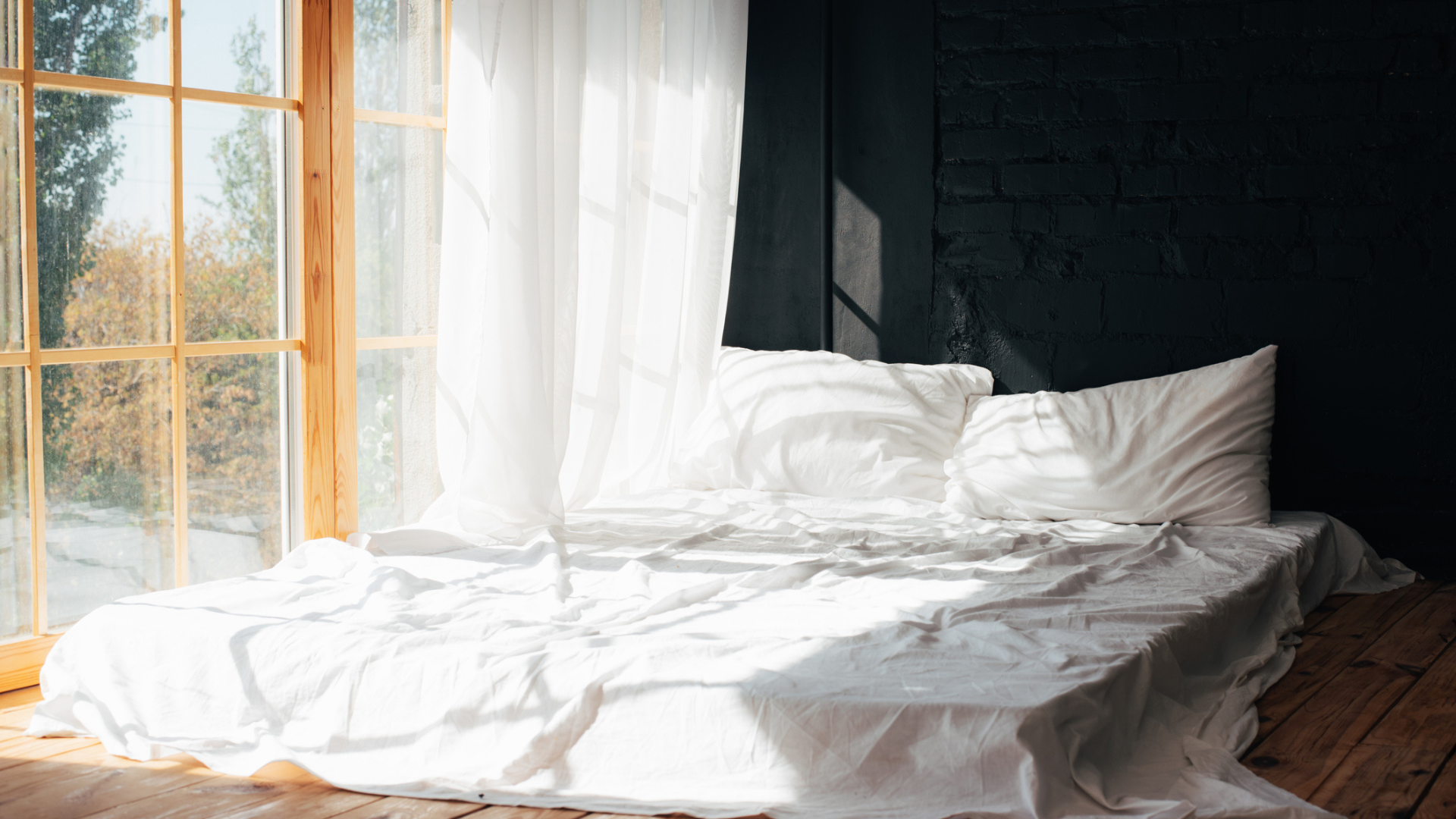
How long does mattress off-gassing last?
How long a mattress takes to off-gas depends largely on the type of mattress you have. Some cheaper foam mattresses can be particularly potent when off-gassing, meaning the smell may linger for over a week.
However, on average, the smell should start to go after a few days. For high quality foam mattresses and hybrid mattresses, it could take just a few hours for off-gassing to stop.
Should I sleep on a mattress that’s off-gassing?
As long as your new mattress has fully expanded, which can take anywhere from 24-72 hours for the best mattresses in a box, then it is safe to sleep on. However, you should give it plenty of time to air out in a ventilated room before you bed down for the night.
Consider unboxing your mattress in the morning, leaving it by an open window, and sleeping on it that night. If you plan to sleep on your new mattress as soon as it’s out of the package, then the odor will probably be too strong and you might feel slight irritation in your eyes and nose.
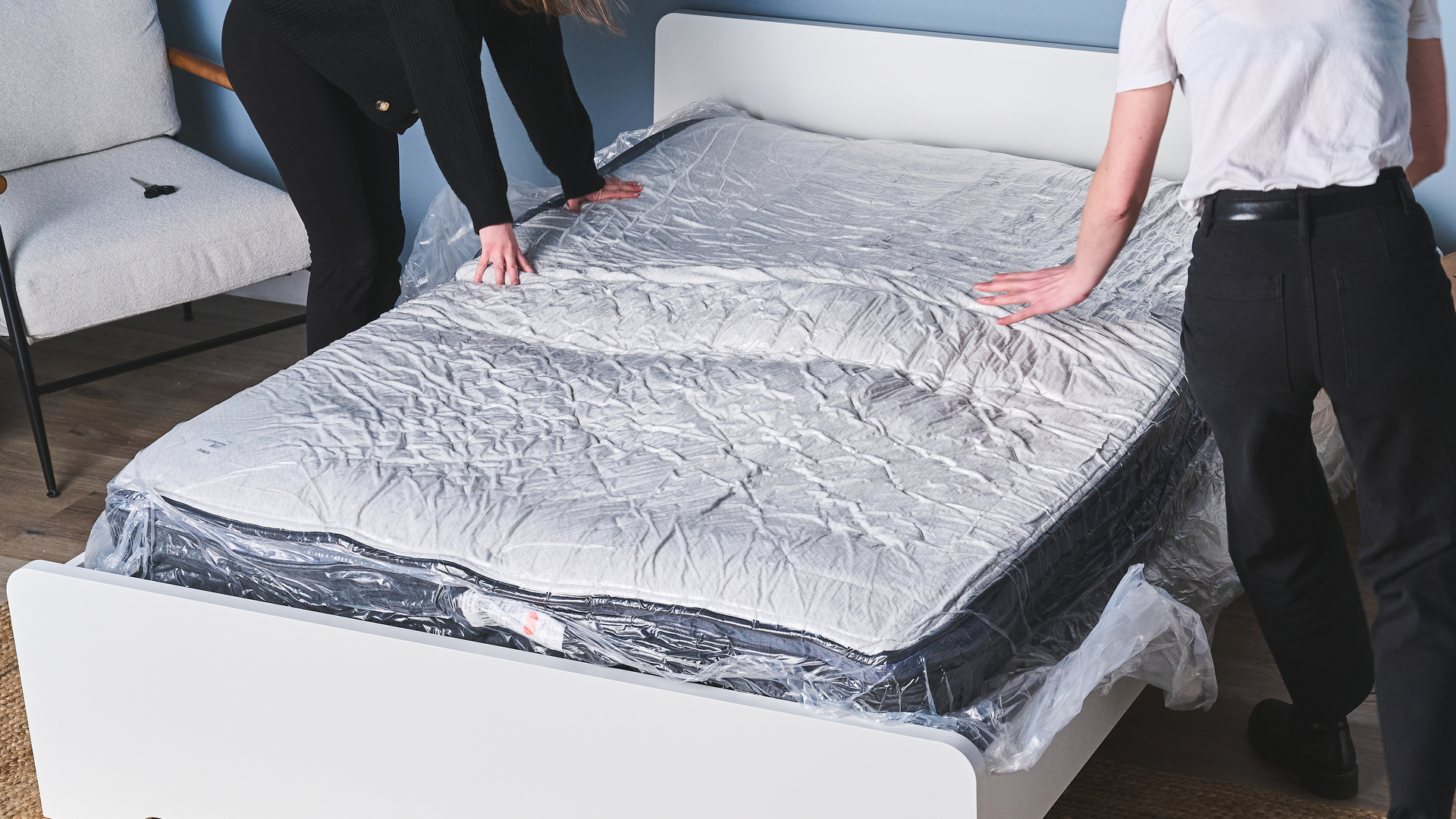
How to avoid mattress off-gassing
If you want to avoid mattress off-gassing altogether, it can be possible. Here are some steps you can take to prevent that new bed smell.
Choose a flat shipped mattress
Recently, mattresses in a box have become incredibly popular, thanks to their convenient and practical shape, and ease of delivery. However, vacuum packing foam mattresses to fit into the box can worsen off-gassing because of the build up of VOCs that aren't evaporating into the air around them.
To avoid this, opt for a more traditional style mattress that is shipped flat to your door. These mattresses will have more space to breathe throughout the shipping process, meaning you won't be hit by a pungent smell when you unpackage them.
Air out your house before and after
A well ventilated house can make all the difference between off-gassing that hangs around for days or off-gassing that lasts just a few hours.
While opening windows is essential during the unboxing process and after, it's also important to get good airflow throughout the house before you unwrap your new mattress. This will help circulate the VOCs as soon as possible, instead of them hanging around in one particular room.
Choose an organic or innerspring mattress
As we mentioned above, the worst off-gassing mattresses are those made with all foam, especially cheap foam. To avoid the smell as best as you can, you should opt for organic, natural or innerspring mattresses.
The materials used in organic mattresses won't be synthetic, meaning it's unlikely they'll have VOCs inside them. Similarly, innerspring mattresses contain very little foam, reducing the overall amount of off-gassing you can expect.

Lauren is an experienced writer and editor in the health and lifestyle industry and has led many campaigns and projects that deliver news, advice, and research on all things sleep. As the Sleep Features Editor for Tom’s Guide, Lauren writes, commissions and edits sleep and mattress content, from in-depth how-tos in sleep and mattress health to interviews with doctors and neuroscientists on the latest news in sleep. Lauren regularly tests new sleep tech and accessories to evaluate their effectiveness for getting good quality sleep and easing specific sleep struggles like nighttime anxiety. Alongside this, Lauren reports on the best mattress brands out there, like Helix, Saatva, and DreamCloud, helping readers find the right mattress for them and the best deals on them.
